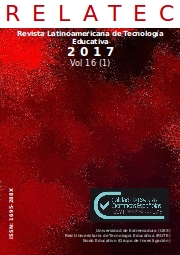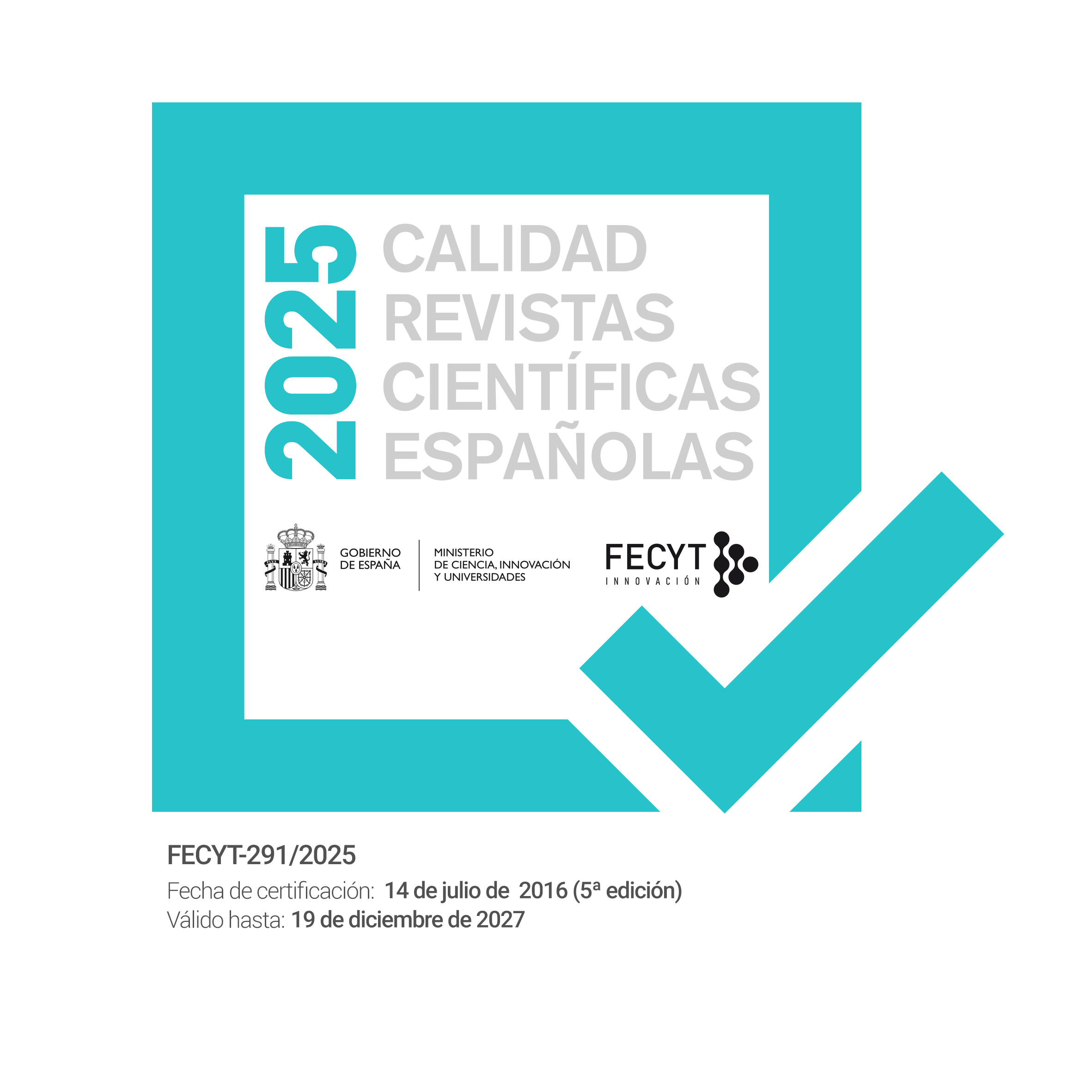Building Third Space in the Initial Teacher Training. A Practical Experience from Funds of Digital Knowledge and Identity Perspective
DOI:
https://doi.org/10.17398/1695-288X.16.1.35Keywords:
Identidad Profesional, Conocimiento Docente, Formación de Docentes, TIC, Métodos de Enseñanza, Métodos de Formación, Autoaprendizaje / Professional Identity, Teacher Knowledge, Teacher Training, ICT, Teaching Methods, Training Methods, Self InstructionAbstract
The initial teacher training needs more inclusive approaches to allow a coherent articulation between theory, practise and recognition of identity and knowledge of students. The purpose of this article is to explore the fund of knowledge and identity of a student at the University of the Basque Country on his training period. Furthermore, we analyse the relations created between his biographical elements and his teaching practice at school during his traineeship. We study different strategies to enable the building of third space (Bhabha, 1994; Gutiérrez, 2008), strengthening university-school relationship. The development of this experience has allowed us to discover the educational possibilities offered by a change in the epistemology of teacher training, to establish a better relationship between personal and professional areas of students, and academic and practical dimensions during their training.
Downloads
References
Bagnoli, A. (2009). Beyond the standard interview: The use of graphic elicitation and arts-based methods. Qualitative Research, 9(5), 547-570.
Bhabha, H. K. (1994). The location of culture. New York: Routledge.
Bruner, J. (1996). The culture of education. Cambridge, MA: Harvard University Press.
Burbules, N. C. (2013). El aprendizaje ubicuo y el futuro de la enseñanza. Encounters on education, 13, 2-14.
Carlson, H. L. (1999). From practice to theory: A social constructivist approach to teacher education. Teaches and Teaching: Theory and Practice, 5(2), 203-218.
Cochran-Smith, M. (2003). Learning and unlearning: the education of teacher educators. Teaching and Teacher Education, 19, 5-28.
Cochran-Smith, M., Villegas, A. M., Abrams, L., Chavez-Moreno, L., Mills, T. y Stern, R. (2015). Critiquing Teacher Preparation Research: An Overview of the Field, Part II Journal of Teacher Education, 66(2), 109–121. doi: 10.1177/0022487114558268
Comisión Europea. (2006). Competencias clave para el aprendizaje permanente. Recomendación del Parlamento Europeo y del Consejo. Recuperado de http://europa.eu/legislation_summaries/education_training_youth/lifelong_learning/c11090_es.htm
Correa, J. M., Martínez-Arbelaiz, A. y Aberasturi-Apraiz, E. (2015). Post-modern reality shock: Beginning teachers as sojourners in communities of practice. Teaching and Teacher Education, 48(0), 66-74. doi: http://dx.doi.org/10.1016/j.tate.2015.02.007
Correa, J. M., Martínez-Arbelaiz, A. y Gutiérrez, L. P. (2013). Between the real school and the ideal school: another step in building a teaching identity. Educational Review, 66(4). doi: 10.1080/00131911.2013.800956
Dall’Alba, G. (2009). Learning Professional Ways of Being: Ambiguities of becoming. Educational Philosophy and Theory, 41(1), 34-45. doi: 10.1111/j.1469-5812.2008.00475.x
Darling-Hammond, L. (2006). Constructing 21st-Century Teacher Education. Journal of Teacher Education, 57(3), 300-314. doi: 10.1177/0022487105285962
Day, C., Fernandez, A., Hauge, T. y Moller, J. (2000). The Life and Work of Teachers: International Perspectives in Changing Times. London: Falmer Press.
Esteban-Guitart, M. (2012). La Multi-metodología Autobiográfica Extendida (MAE). Una estrategia cualitativa para estudiar la identidad, los fondos de conocimiento y las formas de vida. Revista Electrónica de Metodología Aplicada, 2(17), 51-64
Esteban-Guitart, M. y Moll, L. C. (2014). Funds of Identity: A new concept based on the Funds of Knowledge approach. Culture & Psychology, 20(1), 31-48. doi: 10.1177/1354067x13515934
Fullan, M. y Hargreaves, A. (2000). La escuela que queremos. Los objetivos por los que vale la pena luchar. México: SEP/Amorrortu.
Gibbons, M., Limoges, C., Nowotny, H., Schwartzman, S., Scott, P. y Trow, M. (1997). La
nueva producción del conocimiento. La dinámica de la ciencia y la investigación en las sociedades contemporáneas. Barcelona: Pomares-Corredor.
González, N. , Moll, L. y Amanti, C. (2005). Funds of knowledge. Theorizing practices in households, communities and classrooms. Mahwah, N.J. y London: Lawrence Erlbaum Associates.
González-Patiño, J. y Esteban-Guitart, M. (2015). Fondos digitales de conocimiento e identidad. Un análisis etnográfico y visual. Papeles de Trabajo sobre Cultura, Educación y Desarrollo Humano, 11(2), 20-25.
Gudmundsdottir, S. (1998). La naturaleza narrativa del saber pedagógico sobre los contenidos. En H. M. Ewan y K. Egan (Eds.), La narrativa en la enseñanza, el aprendizaje y la investigación (pp. 82-92). Buenos Aires: Amorrortu.
Gutiérrez, K. D. (2008). Developing a Sociocritical Literacy in the Third Space. Reading Research Quarterly, 43(2), 148-164.
Gutiérrez, K.D., Rymes, B. y Larson, J. (1995). Script, counterscript, and underlife in the classroom: James Brown versus Brown v. Board of Education. Harvard Educational Review, 65, 445–471.
Hargreaves, A., Earl, L., Moore, S. y Manning, S. (2001). Learning to Change: Teaching Beyond Subjects and Standards. San Francisco: Jossey Bass.
Kemmis, S. (2008). Critical Theory and Participatory Action Research. In P. Reason & H.
Bradbury (Eds.), The SAGE Handbook of Action Research. Participative Inquiry and Practice. London: Sage Publications.
Korthagen, F. (2001). Linking Practice and Theory. The Pedagogy of Realistic Teacher Education. Mahwah, N. J. : L. Erlbaum Associates
Korthagen, F. (2010). La práctica, la teoría y la persona en la formación del profesorado. Revista interuniversitaria de formación del profesorado(68), 83-102.
Levy, P. (2004). Inteligencia colectiva. Por una antropología del ciberespacio. Recuperado de http://www.textos.pucp.edu.pe/pdf/2281.pdf
Lieberman, A. , & Wood, D. (2004). Cuando los profesores escriben. En A. Lieberman y
L. Miller (Eds.), La indagación como base de la formación del profesorado y la mejora de la educación (pp. 209-224). Barcelona: Octaedro.
Moje, E. B., Ciechanowski, K. M., Kramer, K., Ellis, L., Carrillo, R. y Collazo, T. (2004). Working toward third space in content area literacy: An examination of everyday funds of knowledge and Discourse. Reading Research Quarterly, 39(1), 38-70. doi: 10.1598/RRQ.39.1.4
Moll, L. C. (1997). Vygotsky, la educación y la cultura en acción. Hacia un currículum cultural. La vigencia de Vygotski en la educación (A. Álavarez ed., pp. 39-53). Madrid: Fundación Infancia y Aprendizaje.
Pardo, H. (2014). Opportunity Valley. Lecciones 'aún' no aprendidas de treinta años de contracultura digital. Barcelona: Outliers School.
Putnam, R. T. y Borko, H. (2000). What do new views of knowledge and thinking have to say about research on teacher learning. Educational Researcher, 29(1), 4-15.
Sancho, J. M. y Correa, J. M. (2013). Aprender a ser maestra: perplejidades y paradojas. Cuadernos de pedagogía(436), 18-21.
Sancho, J. M., & Correa, J. M. (2016). Aprendiendo a enseñar. La constitución de la identidad docente en la educación infantil y primaria. Movimento. Revista da Escola de Educação Física, 22(2), 471-484.
Sancho, J. M., y Hernández, F. (2011). Educar en un mundo volátil, incierto, complejo y ambiguo. Entrevista a David Berliner. Cuadernos de pedagogía, 410, 44-49.
Sugrue, C. (1997). Student teachers’ lay theories and teaching identities: Their implications for professional development. European Journal of Teacher Education, 20(3), 213–225.
Watson, C. (2006). Narratives of practice and the construction of identity in teaching. Teachers and Teaching: theory and practice, 12(5), 509–526. doi: 10.1080/13540600600832213
Weiser, M. (1991). The computer for the 21st century. Scientific American, 265(3). doi: 10.1145/329124.329126
Wenger, E. (2001). Comunidades de práctica: aprendizaje, significado e identidad. Barcelona: Paidós Ibérica.
Zeichner, K. M., Payne, K. A. y Brayko, K. (2015). Democratizing Teacher Education. Journal of Teacher Education, 66, 122-135. doi: 10.1177/0022487114560908
Downloads
Published
Issue
Section
License
Authors who publish in this journal accept the following conditions:
1. The Author retains copyright in the article. Upon acceptance of the article, the author shall grant to the Publisher the right of first publication of the article. with the dcoument registered with the Creative Commons Attribution-NonCommercial-NoDerivative 4.0 International (CC BY-NC-ND) license, which allows to third parties to use what is published whenever they mention the authorship of the work and the first publication in this journal.
2. Authors can make other independent and additional contractual agreements for the non-exclusive distribution of the article published in this journal (eg, include it in an institutional repository or publish it in a book) provided they clearly indicate that the work was published for the first time in this journal.
3. Authors are allowed and recommended to publish their work on the Internet (for example on institutional or personal pages) before and during the review and publication process, as it can lead to productive exchanges and a greater and faster diffusion of published work (see The Effect of Open Access).









